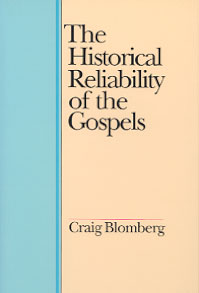 No body of ancient literature has been subjected to intense, historical scrutiny the way the Four Gospels have in the past 200 years.
No body of ancient literature has been subjected to intense, historical scrutiny the way the Four Gospels have in the past 200 years. For example, people have spent their whole lives investigating the sources which the Gospel writers could have used (oral tradition, Q, L, M); the various forms in which the materials appear in the Gospels, how they have shaped these materials for teaching/evangelism and so on...
If we read the Synoptic Gospels side by side, we would notice that there are sizeable chunks of similarities and differences... Could Matthew & Luke have used Mark as source? Should we be more concerned for the voice of Jesus rather than the actual words used by Jesus? And so on...
We should not be surprised that God didn't always dictate His revelation word-for-word. Nor should we be alarmed that the process of God inspired the writing of Gospels is so 'earthy'.. simply because the Bible clearly tells us so.
Didn't the Gospel of Luke begin like this...
Many have undertaken to draw up an account of the things that have been fulfilled among us, just as they were handed down to us by those who from the first were eyewitnesses and servants of the word. (source criticism) Therefore, since I myself have carefully investigated everything from the beginning, it seemed good also to me to write an orderly account (redaction criticism) for you, most excellent Theophilus, so that you may know the certainty of the things you have been taught. (purpose for writing and research)?
Indeed the Lord could choose to use and guide the personalities and skills of fallible men to write His inerrant and infallible Word.
 Craig Blomberg wrote one of the most helpful one-volume overview of the findings and debates on the historical reliability of the Gospels. It will reward those who persevere. He deals with the harmony and dissonance amongst the Gospel accounts, the inter-dependence between the writers, new methods of studying the gospels, apparent contradictions, miracles and how non-biblical evidence corroborate with the biblical accounts etc.. Great stuffs for beginners like us
Craig Blomberg wrote one of the most helpful one-volume overview of the findings and debates on the historical reliability of the Gospels. It will reward those who persevere. He deals with the harmony and dissonance amongst the Gospel accounts, the inter-dependence between the writers, new methods of studying the gospels, apparent contradictions, miracles and how non-biblical evidence corroborate with the biblical accounts etc.. Great stuffs for beginners like us
Comments
Someone asked me wat cheese cake got to do with power? heheh... guess my point was, truth claims are not necessarily masks for control... I'm sure we make claims all our lives which are not motivated by power. :)